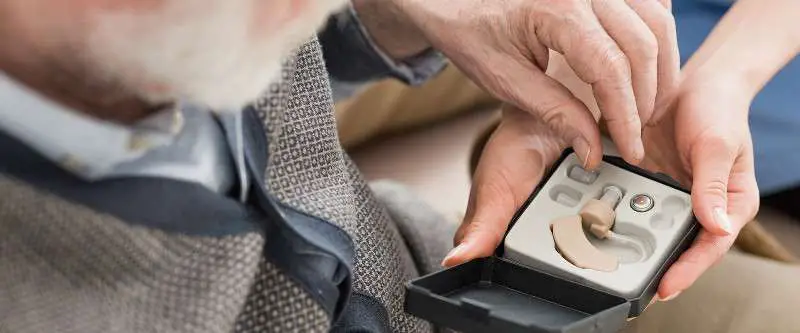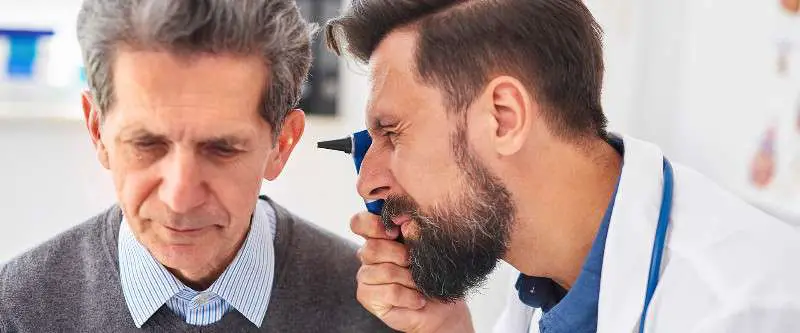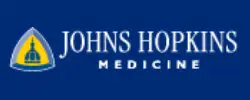Introduction
Navigating the healthcare system can be a daunting process for anyone, let alone someone experiencing the onset of hearing loss due to Otosclerosis. For those unfamiliar with the term, Otosclerosis is a condition characterized by the abnormal growth of bone in the middle ear. This excessive growth can lead to conductive hearing loss, and in more severe cases, sensorineural hearing loss.
In this guide, we aim to illuminate the path for individuals living with Otosclerosis and their caregivers. We will delve into various aspects of Otosclerosis, including its recognition on World Hearing Day, understanding healthcare systems, public health measures, advocating for research funding, and the crucial role of self-advocacy.
Presented in a supportive and educational tone, we hope that the information shared in this guide will equip you with the knowledge and insights needed to navigate your journey with Otosclerosis. Our ultimate goal is to ensure that each person affected by Otosclerosis feels empowered, supported, and heard.
We understand the complexities of this condition and the multitude of questions that may arise. Therefore, this comprehensive guide has been crafted to answer some of these questions and provide a beacon of understanding and clarity in the face of Otosclerosis.
AMZ-Lexie Lumen Self-Fitting OTC Hearing Aids
Experience the Ultimate Sound Quality with Lexie Lumen self-fitting OTC hearing aids. These remarkable devices utilize dual microphones to deliver crystal clear sound, immersing you in a world of auditory excellence. Say goodbye to communication struggles in public spaces or on phone calls, as our Telecoil functionality directs speech directly to your hearing aids via an induction loop system. Rediscover the joy of hearing with unmatched clarity and precision.
Embrace an Active Lifestyle with Lexie Lumen hearing aids. Our cutting-edge sweatproof technology, including Nano coating, safeguards against moisture damage, allowing you to wear your hearing aids during outdoor activities like walks, runs, and open-air events. With Lexie, you can live life to the fullest without compromising on the quality or lifespan of your devices. Don’t let hearing loss hold you back—experience the freedom of superior hearing with Lexie Lumen self-fitting OTC hearing aids.
World Hearing Day – Amplifying Otosclerosis Awareness
World Hearing Day, observed on March 3rd, is a key date in the global health calendar. The World Health Organization (WHO) uses this day to raise awareness about hearing loss, including conditions like Otosclerosis. The theme for World Hearing Day often highlights the importance of early identification and intervention for hearing loss.
World Hearing Day is instrumental in amplifying awareness about Otosclerosis. By shedding light on the condition, it encourages individuals to seek help for their hearing loss and prompts policy-makers to prioritize hearing health. This day of recognition plays a crucial role in reducing the impact of Otosclerosis globally.
Various organizations, including the Hearing Health Foundation (HHF), run campaigns to coincide with World Hearing Day. These campaigns focus on increasing awareness of Otosclerosis, promoting early diagnosis, and advocating for better treatments.
Navigating Healthcare Systems for Otosclerosis Patients
The healthcare journey for an Otosclerosis patient often begins with recognizing the symptoms and seeking a diagnosis. However, navigating healthcare systems can be complex and overwhelming. Understanding the patient pathway can empower individuals with Otosclerosis and their caregivers to effectively engage with healthcare providers and access the necessary care.
The American Academy of Otolaryngology – Head and Neck Surgery (AAO-HNS) offers a wealth of information on Otosclerosis, including a detailed guide on diagnosis and treatment options. This guide can help patients and caregivers to better understand the care pathway and prepare for consultations with healthcare professionals.
Support groups and patient organizations, such as the Hearing Loss Association of America (HLAA), offer valuable resources to help navigate the healthcare system. They provide information on accessing treatment, managing insurance claims, and advocating for the rights of people with hearing loss.
Navigating the healthcare system can be challenging, but with the right resources and knowledge, patients with Otosclerosis can access the care they need and deserve.
Public Health Measures to Reduce the Impact of Otosclerosis
Public health plays a pivotal role in reducing the impact of Otosclerosis. At its core, public health strives to improve the health of populations through preventative measures, health promotion, and disease management. For conditions like Otosclerosis, public health measures include education, screening, early diagnosis, and treatment.
The National Institutes of Health (NIH) and the Centers for Disease Control and Prevention (CDC) in the United States advocate for hearing health through various initiatives. They provide comprehensive information on hearing loss, its causes, prevention, and treatment, including valuable resources on Otosclerosis.
One key public health measure for Otosclerosis is early detection and intervention. Otosclerosis often goes undiagnosed due to its gradual onset and the stigma associated with hearing loss. Public health campaigns that raise awareness about the early signs of Otosclerosis and the importance of seeking help can lead to earlier diagnosis and treatment, reducing the long-term impact of the condition.
Access to affordable and effective treatment options is another crucial public health measure for Otosclerosis. Public health agencies work alongside government bodies to ensure individuals with Otosclerosis have access to the care they need, regardless of their financial situation.
Tinnitus: The Truth Behind That Annoying Ringing in Your Ears
Advocating for Better Otosclerosis Research Funding
While the precise cause of Otosclerosis remains unknown, research has played a vital role in understanding its pathology and finding effective treatments. Continued investment in research is necessary to discover a cure and improve the lives of individuals living with Otosclerosis.
Organizations like the American Hearing Research Foundation (AHRF) and the Hearing Health Foundation (HHF) are at the forefront of funding research into Otosclerosis. These organizations not only provide funding for research but also advocate for increased governmental and institutional funding.
Advocacy for Otosclerosis research funding is multifaceted and includes lobbying government bodies, raising public awareness, and organizing fundraising events. A strong example of this is the “Emerging Research Grants” program by the HHF, which provides funding for groundbreaking research into hearing loss and related conditions, including Otosclerosis.
With increased funding, researchers can explore innovative treatments, enhance diagnostic techniques, and ultimately strive towards finding a cure for Otosclerosis. Increased research funding not only benefits individuals living with Otosclerosis but also enriches our understanding of hearing health overall.
QUIZ - TINNITUS AND ITS SYNONYMS
Empowering Otosclerosis Patients – A Guide to Self-Advocacy
Empowerment and self-advocacy go hand in hand. For individuals with Otosclerosis, understanding their condition and their rights can equip them with the tools to advocate for themselves. Self-advocacy is about expressing your needs and making sure they are met.
The Hearing Loss Association of America (HLAA) provides resources and support to help individuals with hearing loss, including those with Otosclerosis, to advocate for themselves. They offer tools and strategies to help patients navigate healthcare systems, understand their rights, and make informed decisions about their care.
Empowered patients can play an active role in their healthcare, participate in decision-making processes, and ensure their needs are being met. Self-advocacy doesn’t only involve the healthcare system. It extends to advocating for accommodations at work, seeking support in educational settings, and even addressing societal stigma associated with hearing loss.
In essence, self-advocacy is about taking control of your Otosclerosis journey. With knowledge, understanding, and the right resources, individuals with Otosclerosis can ensure they receive the care, support, and understanding they deserve.
Conclusion
Living with Otosclerosis is a complex journey that requires understanding, support, and access to the right resources. This guide aims to provide a roadmap for patients and caregivers, offering insights into global awareness initiatives, healthcare navigation, public health measures, advocating for research funding, and the empowerment that comes with self-advocacy.
Through initiatives like World Hearing Day, we see the global commitment to raising awareness about hearing conditions like Otosclerosis. This annual event is an opportunity for all stakeholders – from patients to healthcare providers to policy-makers – to understand the prevalence and impact of Otosclerosis and to work towards better care and interventions.
Understanding how to navigate healthcare systems is a critical aspect of managing Otosclerosis. Access to the right care at the right time can significantly improve the quality of life for patients with Otosclerosis. Support groups, patient organizations, and healthcare providers all play a role in guiding patients through this journey.
Public health measures, coupled with continued advocacy for research funding, can have a substantial impact on the outcomes for individuals with Otosclerosis. Investing in research can lead to better diagnostic tools, treatment options, and perhaps, someday, a cure.
Lastly, self-advocacy is an empowering tool for individuals with Otosclerosis. Armed with knowledge and understanding, patients can actively participate in their care, make informed decisions, and advocate for their needs.

Harmonizing Life with Mixed Hearing Loss: A Global Perspective
Dive into the complexities of Mixed Hearing Loss with our comprehensive guide, exploring diagnosis, treatment options, and practical tips for daily management

Harmonizing Silence and Sound: Mastering Mixed Hearing Loss
Dive into the complexities of Mixed Hearing Loss with our comprehensive guide, exploring diagnosis, treatment options, and practical tips for daily management.






